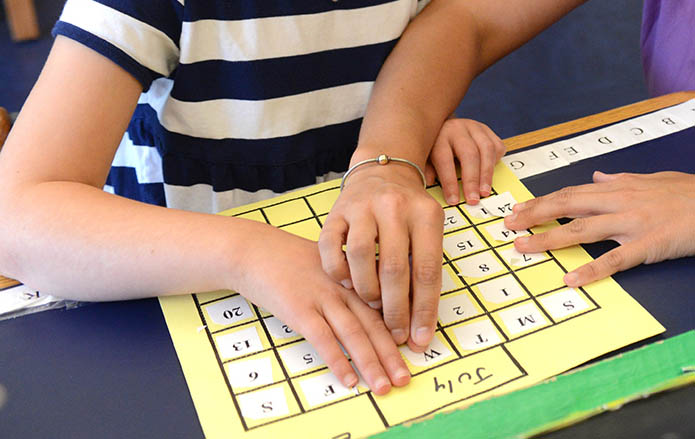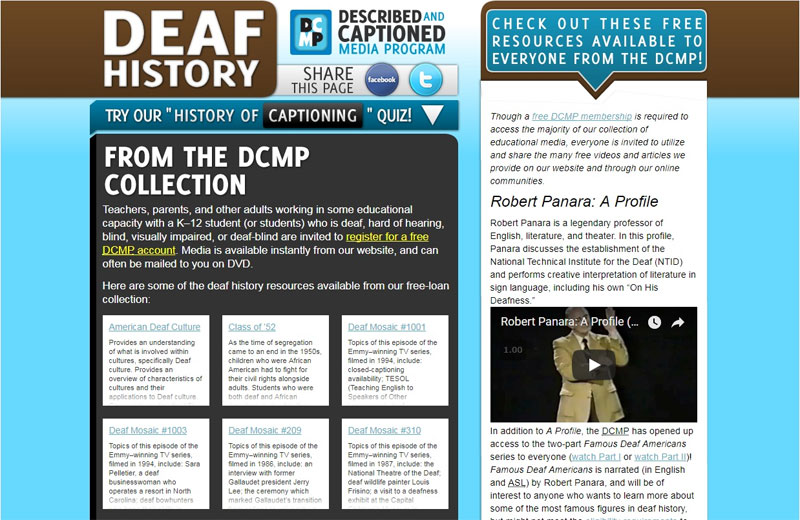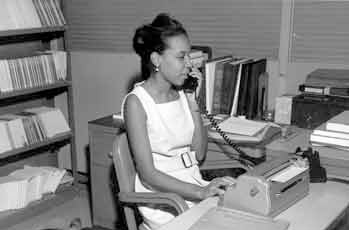7 Learning Center results found.

On the Need for Usable Videos for Deaf-blind Students and How It Can Be Met With Captioning and Description
The Described and Captioned Media Program (DCMP) is a national non-profit that is
federally funded to serve as a free-loan media library of accessible educational videos
for K–12 students who are deaf, hard of hearing, blind, visually impaired, or deaf-blind.
DCMP recently conducted interviews in order to determine how accessible videos are
used in the classroom with students who are deaf-blind and what other options need to
be included in order for these videos to meet the widest need possible.
about deaf-blind, educators

eLearning Modules for Students
DCMP has a variety of self-paced online learning modules designed for students and for teachers with students in transition. These modules are open to eLearners and full members. Click on the links below to read more about each module.
From about module, transition, blindness, deaf

Deaf History
Teachers, parents, and other adults working in some educational capacity with a K–12 student (or students) who is deaf, hard of hearing, blind, visually impaired, or deaf-blind are invited to register for a free DCMP account. Media is available instantly from our website, and can often be mailed to you on DVD.
about dcmp, history

Blindness and Black History: One Leader's Perspective
When Carter G. Woodson created the observance of "Negro History Week," which later became "Black History Month," he inspired African Americans to protect and uphold their history, which not only includes written history, but also oral history and the preservation of special and unique artifacts. Our history is our genesis, our present, and our path to the future. It explains how we came to be, who we are, where we are today, and where we are going tomorrow.
From Freddie Peaco about history, educators, blindness

Captioned Films for the Deaf
Originally published in 1976 in “Exceptional Children,” Malcolm J. Norwood, Chief of Captioned Films and Telecommunications, writes of efforts to have FCC authorize use of a closed captioning device.
From Malcolm J. Norwood about captioning, dcmp, history

Pepnet 2
Pepnet 2 (pn2) was a federally-funded project to increase the education, career, and lifetime choices available to individuals who are deaf or hard of hearing. Funding for the project ended in 2016. However, many of the resources created by this project are still available through DCMP.
From about educators, pepnet, deaf